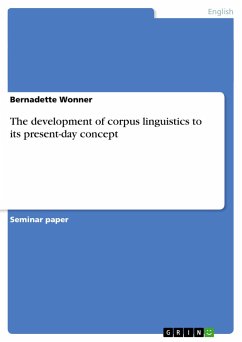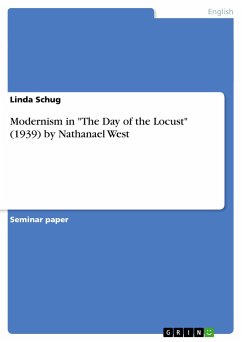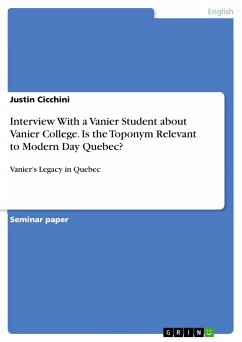Seminar paper from the year 2005 in the subject English Language and Literature Studies - Linguistics, grade: 1, LMU Munich (Institut für Englische Philologie), course: Corpus linguistics and teaching, language: English, abstract: [...] This paper will provide an overview of the different stages that CL has gone through. Early Corpus Linguistics will be presented first, a term that describes all corpus-based work up to the end of the 1950s. That is the time when Noam Chomsky makes the early researchers reflect on their work under certain aspects which neutralize somehow the work which was done up to that point. As an effect corpus research faces a certain discontinuity. Nevertheless, corpus-based work does not totally cease and the improvements in computer technology provide completely new possibilities in corpus research. Over the decades a considerable amount of machine-readable corpora is created for more and more different purposes and they initiate all variations of analysis. After the presenation of the chronological development of CL, the last but one chapter of the paper will finally deal with the concept of modern corpus linguistics and will give the definition of a corpus, which is not yet an definite thing to do. There is still a lot of work going on to improve the corpus linguistic methodology. The last chapter will give an overview of future prospects.








